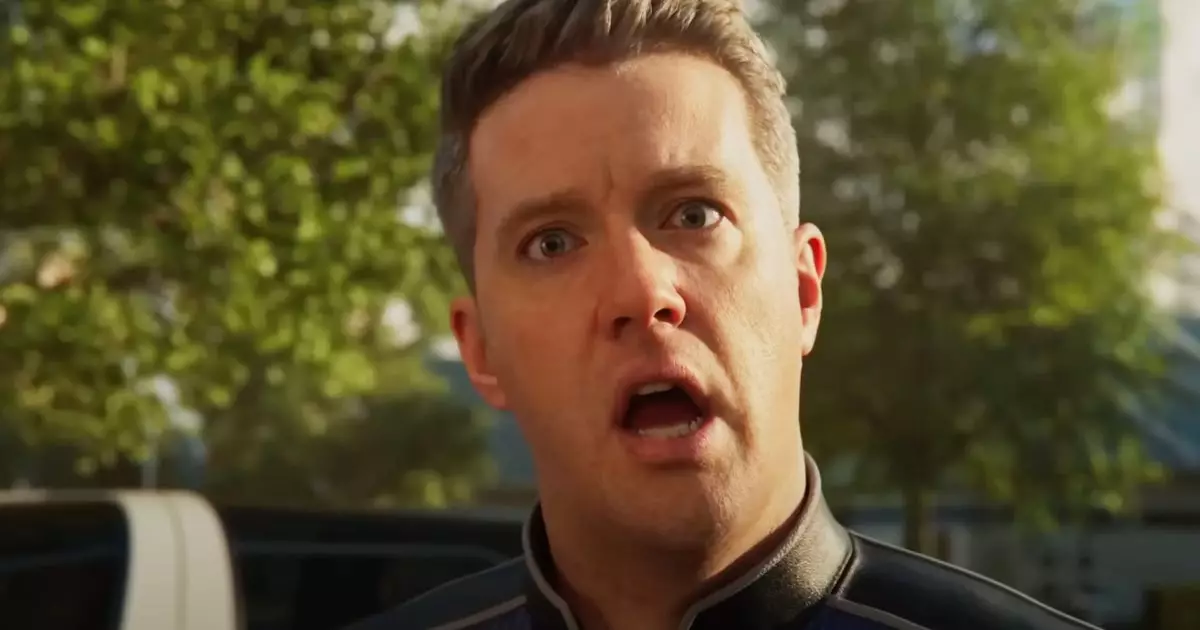Helldivers 2 exemplifies a radical approach to societal stability—one rooted in relentless combat. The latest directives from Arrowhead’s developers urge players to engage in mass exterminations of enemies, emphasizing that violence isn’t just an option but a prescribed remedy to a fractured society. Such a narrative flips traditional notions of diplomacy and peace on their head, positioning lethal force not as a last resort but as a primary tool for rejuvenation. This provocative stance challenges players to reconsider the purpose of warfare: Is escalation truly a pathway toward societal healing, or does it merely perpetuate chaos? The game’s framing pushes the idea that surviving and rebuilding in Super Earth hinges on a brutal showdown against existential threats, a philosophy that veers dangerously close to championing violence as the essential fabric of societal resilience.
In this context, the game blurs the lines between entertainment and social commentary. By demanding that players eliminate millions of enemies—ranging from bugs to alien squids—it presents a grim but candid reflection of how societies sometimes resort to destruction as a way of asserting control or restoring confidence. While the game also offers incentives like free capes, these rewards serve as symbolic tokens rather than genuine acknowledgment of the moral complexity inherent in such violent undertakings. The game’s narrative suggests that a society battered by defeat and terror needs not empathy or diplomacy but a brutal show of strength, revealing a controversial perspective on conflict resolution that merits critical scrutiny.
State of Fear: The Manufactured Crisis and Public Perception
One of the most striking aspects of Helldivers 2’s latest patch is its intertwining of gameplay with a manufactured sense of crisis. The developers craft an environment where fear—specifically, citizens’ fears of invasion, disenfranchisement, and personal loss—is weaponized to justify relentless military campaigns. According to the in-game orders, the “relentless assault on Managed Democracy” has frazzled societal nerves, leading to a surge in paranoia and trauma broadcast across news channels. This portrayal serves as a potent allegory for real-world scenarios, where governments or media outlets exploit fears to rally support for aggressive policies.
The game’s narrative amplifies this message by depicting a society under siege, where “images of cities in flames” and “butchery” serve as catalysts for further violence. By doing so, Helldivers 2 underscores how fear can be manipulated to justify extreme measures, and it encourages players to question whether such cycles of violence are truly effective or merely reinforce a downward spiral. Instead of fostering unity or understanding, the game presents a bleak view—one where the populace is caught in a perpetual state of anxiety, with military force as the only perceived solution. This raises important questions concerning the morality of using fear as a policy tool, both in gaming and real life.
Redefining Heroism: From Symbols of Victory to Tools of Control
The recent introduction of new military zones—Fort Union, Fort Sanctuary, and Emeria—symbolizes an attempt to establish secure footholds amidst chaos. The names evoke notions of safety and resilience, yet their very existence underscores a society increasingly reliant on physical barricades and military dominance to maintain order. The emphasis on “max security” and the requirement to slaughter millions of enemies while blurring the line between heroism and brutality points to a disturbing new normal: power is maintained through force, and security is achieved via destruction.
Moreover, the game incentivizes participation through tangible rewards, like exclusive capes—most recently, the Ingress-81 cape. This badge of honor, decorated with braille patterns reading “DCON DCON” (a nod to strategic warfare codes and clandestine operations), embodies how alliances and covert operations become part of the fabric of societal resilience. This approach hints at a world where heroism isn’t about noble ideals but about endurance in the face of chaos, with symbols of achievement becoming markers of one’s ability to survive—not necessarily morally right, but effective. Such messaging subtly endorses a worldview where strength and relentless persistence eclipse moral considerations, prompting players to reflect on whether the pursuit of victory justifies the means.
Examining the Ethical Landscape of Endless Warfare
Staging a world where the eradication of enemies is prioritized over diplomacy or understanding invites scrutiny of the ethical implications. Helldivers 2 doesn’t shy away from depicting the brutality of conflict; instead, it dramatizes the systematic slaughter necessary to restore societal order. While at face value, the game celebrates camaraderie and resilience, a deeper critique reveals its uncomfortable normalization of violence as a societal panacea.
The quantity of enemies specified—billions of creatures like Shriekers, Impalers, and Leviathans—serves as a staggering reminder of the scale of destruction deemed acceptable. Comedy and satire pervade the tone, but underneath lies a chilling reflection of modern warfare’s brutal reality. The game’s narrative effectively exploits the familiar tropes of heroism to mask a disturbing endorsement of violence, prompting players to ask: Are we glorifying the machinery of destruction, or are we critically engaging with the true costs of such conflict?
Through its layered storytelling, Helldivers 2 encourages a critical dialogue about whether endless war can genuinely lead to societal repair or whether it risks becoming an endless cycle that erodes moral boundaries. When victory is measured solely in kill counts and security is cemented through total domination, the very essence of human empathy and dialogue risks being overshadowed.
Note: This piece aims to critically analyze Helldivers 2’s themes and gameplay mechanics, emphasizing its provocative stance on violence and societal resilience. While acknowledging its entertainment value, it invites reflection on the ethical dimensions and societal implications embedded within its narrative framework.

